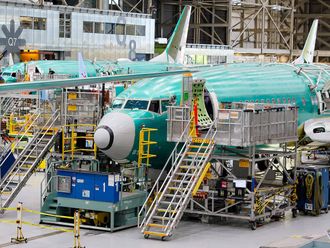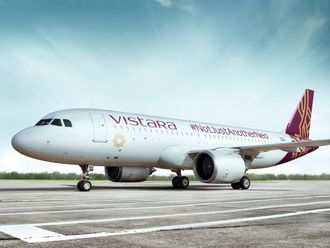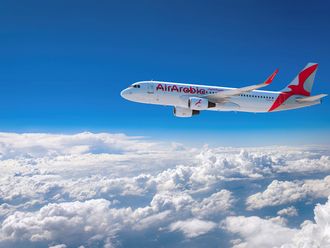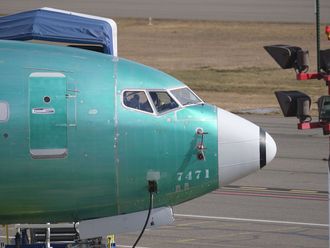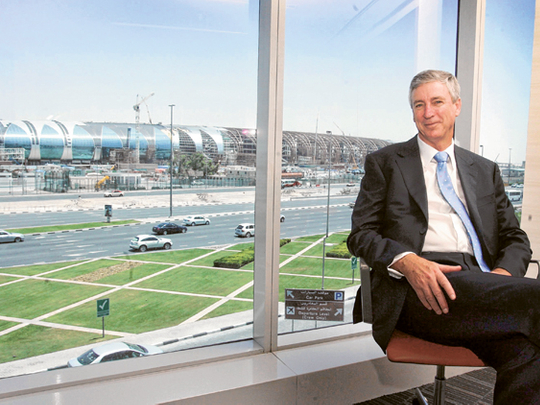
Dubai: Emirates, investing in a wide-body jet fleet including 90 Airbus A380 superjumbos worth $34 billion (Dh124.8 billion) at list prices, said financing the planes isn't a concern and that it's fully funded through July 2012.
A $1 billion bond issue last month was "opportunistic" and Emirates would consider a further sale given "suitable" pricing, Gary Chapman, President of Dnata and Services, Emirates Group, said in an interview.
The world's biggest international airline would consider seeking a credit rating if such a move appeared advantageous, he said.
"The bond was part of risk management and making sure we have a nice cushion of cash just in case," Chapman said in Dubai, adding that there are no plans for a further issue right now.
Obligations for the current year are being met through a mixture of debt and equity, he said.
Emirates plans to spend about $4 billion annually over the next three to four years. Fuel-price volatility will be managed through ticket-price changes and the carrier's cash balance, and it has been less active in hedging for fear of being locked in at prices creating a competition disadvantage, Chapman said. "We have limited cover in terms of call options which will be triggered at higher prices," he said.
"We are not heavily hedged at the moment and that's a conscious decision." Emirates removed its fuel surcharge in May after oil prices fell.
Hub challenge
Emirates is building the largest superjumbo fleet as it seeks to establish Dubai as an inter-continental travel hub and win passengers from Air France-KLM Group, British Airways and Deutsche Lufthansa AG.
Emirates will need about $27 billion to fund jet deliveries for the next six years, Chapman reiterated. About 199 planes are slated for delivery through 2019, the latest fact sheet says.
"We always aim to have about 50 per cent of our fleet on operating leases, so we often do sale and lease back," a strategy that shifts asset risk from the balance sheet, said Chapman. The company, which self-finances up to 85 per cent of aircraft purchases, aims to continue building up its cash pile.
"There's a lot of uncertainty still out there in the world, given what's happening in Greece and Portugal, he said. "And the US is struggling."
Emirates had Dh16 billion in cash at the end of its fiscal year on March 31 and would generally aim to maintain a figure equal to 25-30 per cent of revenue, Chapman said. During the financial crisis of 2008 and 2009 most airlines suffered a drop of 20 per cent in sales, he said.
Dnata rebranding
Emirates boosted annual earnings 43 per cent to a record Dh5.93 billion in the fiscal year as it attracted passengers with its growing A380 fleet.
Plans to rebrand the Dnata ground-handling and catering unit are underway as part of an overseas expansion, with the name being applied to operations in Singapore, currently trading via Changi International Airport Services (CIAS), and the UK, fully acquired in 2005 and operating as Trade Handling.
"We now handle more aircraft, more passengers, more cargo, and more baggage outside of Dubai than inside, so we are no longer Dubai-centric," Chapman said.
Emirates will continue to expand its ground-handling operations and is in talks on acquisition opportunities in the segment, which it may announce before the year's end, he said.


